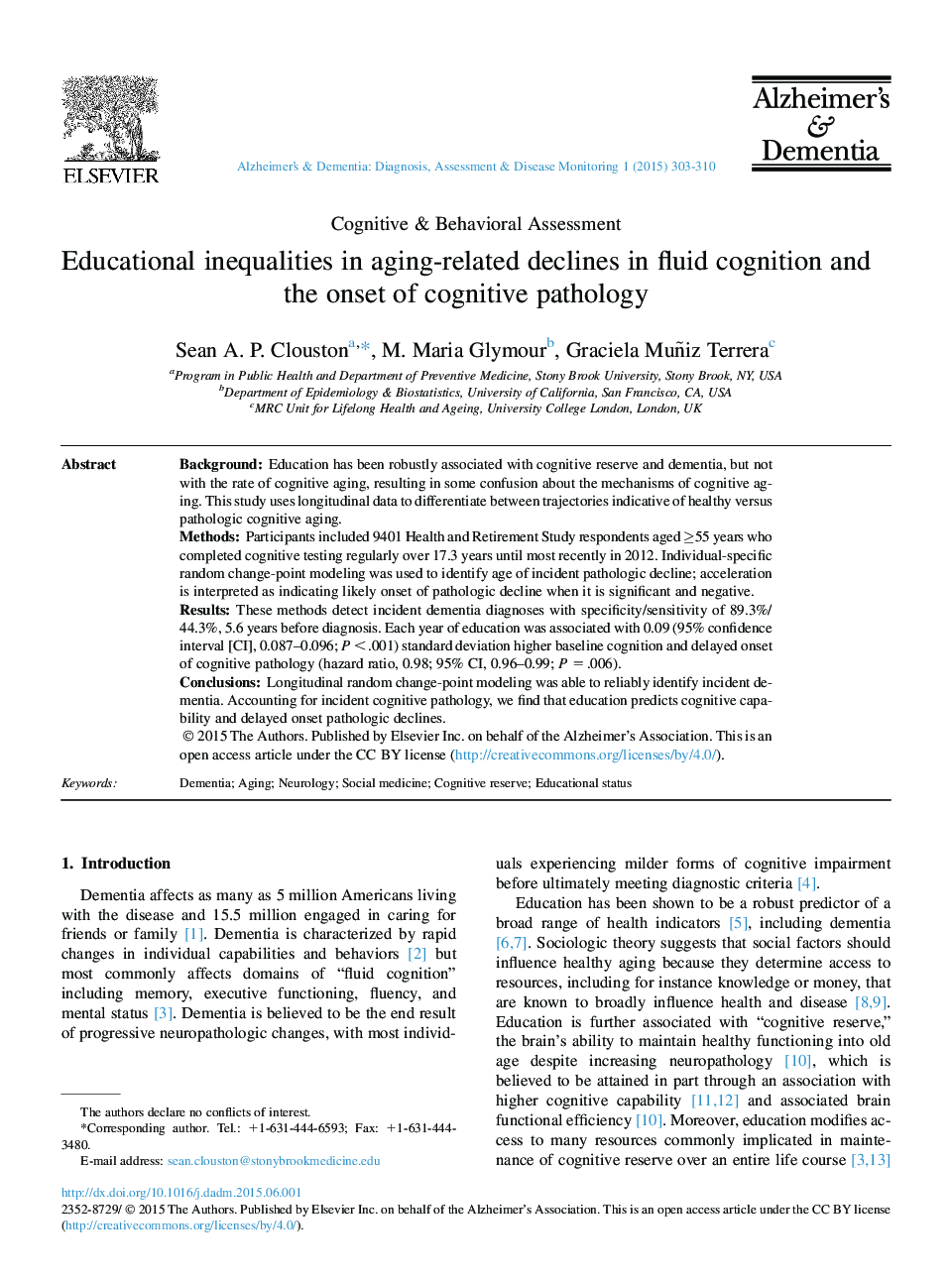| Article ID | Journal | Published Year | Pages | File Type |
|---|---|---|---|---|
| 3032074 | Alzheimer's & Dementia: Diagnosis, Assessment & Disease Monitoring | 2015 | 8 Pages |
BackgroundEducation has been robustly associated with cognitive reserve and dementia, but not with the rate of cognitive aging, resulting in some confusion about the mechanisms of cognitive aging. This study uses longitudinal data to differentiate between trajectories indicative of healthy versus pathologic cognitive aging.MethodsParticipants included 9401 Health and Retirement Study respondents aged ≥55 years who completed cognitive testing regularly over 17.3 years until most recently in 2012. Individual-specific random change-point modeling was used to identify age of incident pathologic decline; acceleration is interpreted as indicating likely onset of pathologic decline when it is significant and negative.ResultsThese methods detect incident dementia diagnoses with specificity/sensitivity of 89.3%/44.3%, 5.6 years before diagnosis. Each year of education was associated with 0.09 (95% confidence interval [CI], 0.087–0.096; P < .001) standard deviation higher baseline cognition and delayed onset of cognitive pathology (hazard ratio, 0.98; 95% CI, 0.96–0.99; P = .006).ConclusionsLongitudinal random change-point modeling was able to reliably identify incident dementia. Accounting for incident cognitive pathology, we find that education predicts cognitive capability and delayed onset pathologic declines.
